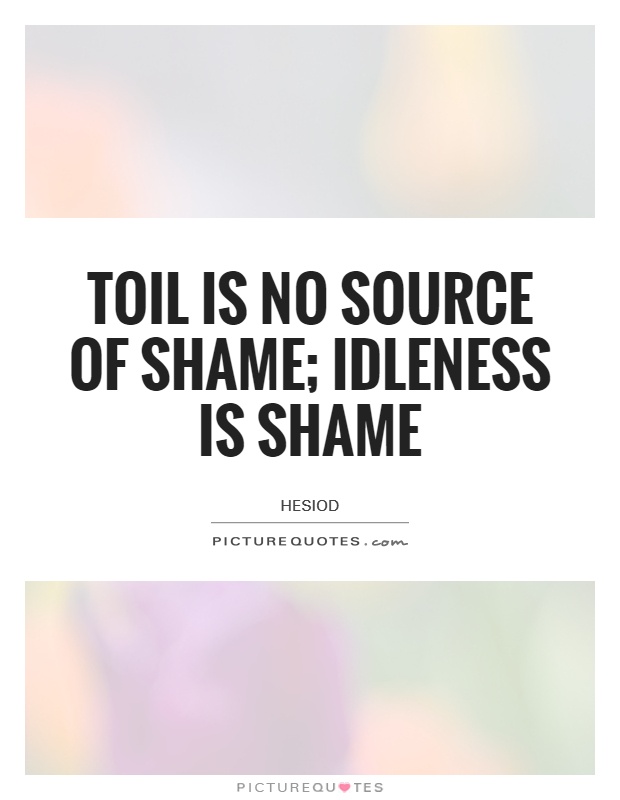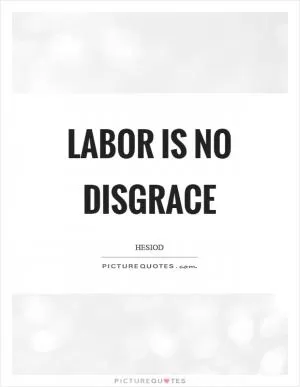Toil is no source of shame; idleness is shame

Toil is no source of shame; idleness is shame
In today's fast-paced society, the idea of idleness is often frowned upon. We are constantly bombarded with messages that emphasize the importance of hard work, productivity, and success. As a result, many people feel guilty or ashamed when they find themselves with free time on their hands. However, the quote "Toil is no source of shame; idleness is shame" reminds us that there is value in hard work and that idleness can be detrimental to our well-being.Toil, or hard work, is often seen as a virtue in our society. It is associated with dedication, perseverance, and achievement. When we work hard, we are able to accomplish our goals, provide for ourselves and our families, and contribute to society. Toil can give us a sense of purpose and fulfillment, and it can help us build self-esteem and confidence. In this sense, toil is not something to be ashamed of; it is something to be proud of.
On the other hand, idleness is often seen as a negative trait. When we are idle, we are not being productive or contributing to society. We may feel lazy, unmotivated, and unfulfilled. Idleness can lead to feelings of guilt, shame, and worthlessness. It can also have negative consequences for our physical and mental health. When we are idle, we may be more prone to boredom, depression, and anxiety. In this sense, idleness can be a source of shame.
However, it is important to recognize that there is a difference between taking a break and being idle. Rest and relaxation are important for our well-being, and it is okay to take time off to recharge and rejuvenate. It is when idleness becomes a habit or a way of life that it can become harmful. When we are constantly idle, we may miss out on opportunities for growth and development. We may also become disconnected from our goals and values, leading to feelings of emptiness and dissatisfaction.












 Friendship Quotes
Friendship Quotes Love Quotes
Love Quotes Life Quotes
Life Quotes Funny Quotes
Funny Quotes Motivational Quotes
Motivational Quotes Inspirational Quotes
Inspirational Quotes